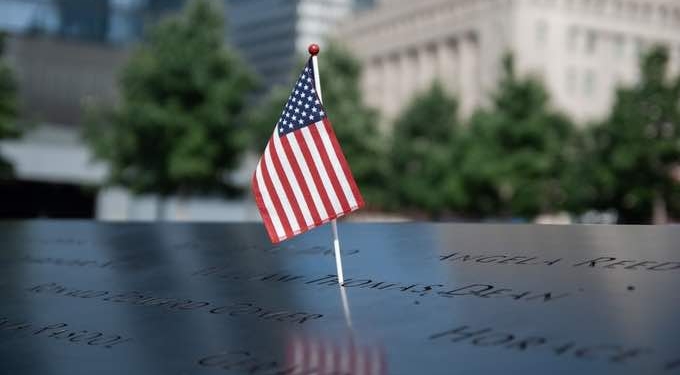
A few days ago, the country marked the nineteenth anniversary of the 9/11 terrorist attack on New York City. It’s not something that many individuals are ever likely to forget.
Presidential candidate Joe Biden and current Vice President Mike Pence crossed paths at Ground Zero.
They both emphasized that grieving for those who died that day nineteen years ago is not a partisan issue, as indeed it should not be. Both talked about first responder bravery and how the country pulled itself together after those tragic events.
In this article, we’ll take a little time to talk about that attack’s impact and the fallout that we continue to experience.
First Responders
Those most impacted by 9/11 are the ones who died in the attack, the first responders who rushed to help, and the downtown residents who breathed in the toxic dust cloud. Experts say that cloud contained more than 2,500 toxins and contaminants. Those included:
- Concrete
- Fiberglass
- Asbestos
When you think about it, it is no wonder that so many first responders and area residents that breathed in the dust now have cancer and other life-threatening conditions.
The 9/11 Victim Compensation Fund
However, it’s at least good to know about the 9/11 Victim Compensation fund that exists to help those affected. Congress set it up to aid:
- Downtown residents and their families
- First responders
- Downtown area workers
It’s there to help anyone directly affected by the attack who is now experiencing medical issues. In addition to first responders, downtown residents, etc., you can also apply if you were a student attending school in that area right after the attack, or if you were a business owner or employee in that locale.
As long as you came in contact with that toxic cloud, it’s likely you can get compensation from this fund to help with medical problems.
After the Attack
For those who lived through the attack, it’s easy to remember how America reacted. The George W. Bush administration decided that there was justification to attack Iraq, although there was little evidence to tie that country to 9/11.
The administration said that Iraq harbored and supported terrorists and that they had weapons of mass destruction. This assertion sharply divided the country. Some, mainly on the political aisle's right side, agreed with the president and his advisors, particularly Vice President Chaney, who strongly supported invading.
Meanwhile, those on the left condemned US involvement in Iraq. There were lots of protests and demonstrations along the way, which some equated to the anti-Vietnam War marches decades earlier.
Obama’s Election
Some people feel that President Obama's election in 2008 was a direct referendum on what the US was doing at the time. President Bush was a lame duck. There was going to be a new US president regardless of who won the 2008 election.
Obama won in part because of his platform of hope and change. He insisted that he would pull the US out of Iraq and Afghanistan, where the US had also sent troops. He won the 2008 election handily and tried to govern the country with a centrist-progressive platform.
Part of that did involve eventually ending both the Iraq and Afghanistan wars, which Americans on both sides of the aisle seemed to want by that point. These wars had raged for many years, and the country was sick of conflict.
Trump’s Election
However, with Obama due to leave office after two terms, a new president was again on the horizon. Some people feel that Donald Trump won, at least in part, because of a nationalism groundswell. A vocal population segment wanted a wall along the US-Mexican border to keep out those Trump classified as criminals.
What’s interesting, though, is that you can conceivably trace those rampant anti-foreigner feelings back to the jingoism still flowing through some of the country post-9/11. It’s this feeling that the “American way of life” is under attack by some outside threat.
Trump’s main idea is to become more insular and to reject multinationalism. Many of his supporters feel the same way.
Is It Possible to Achieve this Objective?
Regardless of whether you back the current administration, studies indicate that it would be virtually impossible to stop this country’s ethnic diversification. President Trump can certainly build a wall along the US-Mexico border, but it’s actually Asian-Americans that are the largest growing eligible voting segment.
On top of that, virtually every study indicates that by 2045, the US will be “minority white.” It is perhaps for this reason that Trump supporters cling so desperately to a figurehead who wants to bring things back to another time. They don’t want things to change, yet that change is unavoidable.
It Goes Back Further Than 9/11
Terrorists etched the events of September 11th, 2001, into American history forever. You can directly trace what this country has done and what it has become in the nearly two decades since, just as we have done in this article.
You could say that the Iraq War and the Patriot Act were overreactions to 9/11. Obama’s election was America looking for a new direction after many years of conflict. Trump's ascendance was a panic response to changes that a particular population segment did not like.
But you can trace the fear of some subversive or dangerous “other” back much further than 9/11. In the late 19th and early 20th centuries, it was the Irish, the Spanish, or the Italians that Americans blamed for the nation’s problems. During World War II, many felt the same way about the Japanese, even those who were American-born.
It’s not unique to America. It's human nature to come up with scapegoats when we have problems. When we can unite against what we perceive to be a common enemy, we inevitably do that.
What’s undeniable is that 9/11 shaped this nation’s destiny, and it continues to do so. We should remember that as we commemorate it, not just this year, but in those yet to come.





![Everything You Ever Wanted to Know About 9/11 Conspiracy Theory in Under 5 Minutes [VIDEO] | by James Corbett](https://consciouslifenews.com/wp-content/uploads/2018/09/911-a-conspiracy-theory-350x250.jpg)









